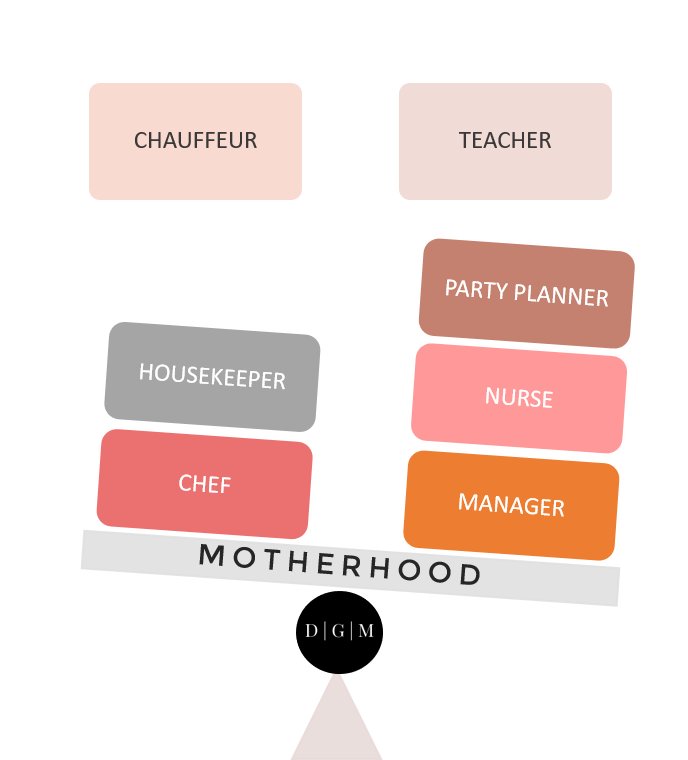How would you define mom guilt?

Photo by Mathilde Langevin via Unsplash
For many, guilt is a sense of regret or wrongdoing. For me, mom guilt is often a series of negative emotions happening before, during, and/or after specific actions.
I experienced mom guilt as a mom working outside the home and I experience it now as a stay-at-home-mompreneur. I’ve done all the things to eliminate the feelings of failing my children but they persist.
- I felt shame when I stopped breastfeeding before my daughter’s first birthday.
- Guilt consumed me before I left my career as a scientist.
- Even now, working for myself from home, I struggle with my own inner voice suggesting the one thing I fear most – that I’m not being the mom that my kid needs me to be.
It’s frustrating because as parents, we are always doing but often feeling that we aren’t doing enough.
So.
I don’t intend to suggest I have the solution to eliminate the mom guilt conundrum that has existed for decades (that would be disingenuous); instead, I want to offer tips to help you manage the worrying and second-guessing that may be consuming your thoughts.
7 Tips for Managing Mom Guilt
1. Stop believing everything you think.
I studied biology and psychology as an undergrad student mostly because of my interest in learning how the brain works. Here’s what I can share from that experiment that cost me five years and several thousands of dollars:
- Our brains are tools that are designed to help us survive in the world.
- To survive we create stories and interpretations of our experiences.
- These experiences and circumstances lead to thoughts.
- Our thoughts inform our feelings yet our thoughts are not absolute truths about the world or ourselves.
This information about our brains is good news. It means that negative self-talk about how you are unworthy, undone, and doing everything wrong is probably total bullcrap.
You can bring awareness to your inner critic to help you be a better parent; however, you can also do the work to shut down or neutralize the thoughts causing you to feel guilty if they aren’t serving you or your family. If you want help with this work, consider resources like life coaching, meditation apps, or mindfulness podcasts.
Related Resource: Don’t Believe Everything You Think
2. Choose new thoughts.
Here’s an example.
- When my daughter was younger, she rolled off the bed and fell on the floor. That circumstance is neutral until I give meaning.
- Thought: I allowed my kid to be put in harm’s way. I’m awful.
- Feeling: Guilt
- Action: Negative self-talk
- Result: Self-pity
Now watch what I can do with the same circumstance.
- Circumstance: My daughter rolled off the bed and fell on the floor.
- Thought: I allowed my kid to be put in harm’s way. I can to do better to ensure it doesn’t happen again.
- Feeling: Compassion
- Action: New sleeping arrangement and addition of guard rail
- Result: More safe situation for my daughter
In the example, both of the circumstances are the same. The difference in results comes from the difference in thoughts and subsequent actions. And, one result is obviously more serving than the other.
This technique of observing and choosing our own thoughts isn’t new; however, I was able to put it into practice after learning about self-coaching. If this is intriguing to you check out Brooke Castillo of The Life Coach School.
Our circumstances often are out of our control but our thoughts are optional.
Related Resource: Believing New Thoughts Podcast
3. Learn to pause.
As parents, we seem to always be juggling.

Pausing can be terrifying because what will happen to all the things that are keeping us busy moving?
Most of us don’t know what would happen to #allthethings because we’ve been juggling so long, we don’t even realize we are juggling on autopilot.
It may be time to pause.
Pausing doesn’t mean stopping everything at once but it can mean intentionally stopping one thing to evaluate if we are doing things from a place of necessity or habit. Also, we want to determine if that thing/that action is still useful at this stage in our parenting journey.
Perhaps it’s time to delegate some tasks?
- Is your kid responsible enough to do a load of laundry?
- Is your partner available to help with a meal?
- Are you sharing the money management load most efficiently?
The answers to these questions can change with every season. We sometimes need a pause to figure these things out.
4. Stop competing with others.
Have you allowed what other parents are doing to influence your opinion of your own parenting?
I have. Here’s an example.
I taught my kid to read at the ripe age of three. I was super proud of my daughter and myself. Then, I came across a mom who had done the same and had started her kid learning multiple languages.
My initial thought was shoot, I need to begin my kid learning a new language immediately but I stopped myself.
Of course, I want my child to learn new languages but it needs to come from curiosity and a purposeful pursuit to understand another culture – not as a way to compete with another mom or child. Plus, as I’m coming into myself as a homeschooling mom, I’m learning that my kids learning experiences aren’t about me and there is no rush.
Here’s the thing.
The introduction of media and social media has made comparison easier and competitive parenting a sport. That isn’t serving to anyone and can lead to the growth of the ego, a voice in your head that “creates your identity from your social status”. The well-being of children isn’t related to our ability to boost or show off what they can do. Children (and adults) can be magnificent people separate from their accomplishments.
Related Resource: 6 Reasons Stay-at-Home-Mom Life Feels Like an Identity Crisis
One way to combat the desire to compete is to notice how different media outlets and personal interactions impact your parenting desires and be intentional about the actions you take as a result of those interactions.
5. Embrace self-preservation practices.
In the past, I’d use the phrase self-care here but it seems that the phrase has become synonymous with taking bubble baths or indulging in superficial feel-good activities like manicures and pedicures. Those practices are okay for feeling good temporarily but here I’m suggesting that we go deeper and cater to our inner needs.
Every mom should be indulging in self-preservation unapologetically.
Self-preservation is taking time to meditate, journaling consistently for mental relief, participating in faith-based activities, or seeking therapy with qualified professionals; it’s saying no even when you don’t want to disappoint (any people-pleasers in the house?), and it’s setting boundaries with everyone in our lives.
Mostly, it’s doing what is necessary to help you fill your own cup so that you have what you need to be present and energized for your family and others.
6. Decide what you want.
In my experience, it has always been easier to figure out what I don’t want.
- I don’t want to regret my parenting decisions.
- I don’t want a contentious relationship with my kids.
- I don’t want to be a bad role model.
Great. We know what we don’t want but what do we want? As moms, we rarely get asked this question but it’s the most necessary question to consider AND ANSWER for ourselves.
Figure out what you want as a woman and as a parent. Then, decide that you ar capable of achieving it.
After some deep introspection, I decided what I wanted.
- I want to wake up each morning and hug my child genuinely knowing that I did my best the day before.
- I want my kid to trust me and feel loved.
- I want to make space for mistakes and failures and not allow them to mean anything bad about myself or my family.
- I want curiosity to be the learning skill that never fades.
These are just a few of the things I want and now that I know what I what it’s much easier to set more specific goals that can be tracked and evaluated.
What do you want?
7. Give yourself grace.
Parenting is a journey and we need to be able to give ourselves grace as we go along.
- Every child is unique and each child will need different things from us.
- Each of our circumstances as women and moms is different.
These are reasons why there is no one-size-fits-all parenting technique.
So.
While we sometimes think some parents have it all figured out, the reality seems to be that we are all making it up as we go along.
And…
As we go along we will be unsure, worried, and occasionally stressed about our life decisions (it means we care). Hopefully, in those moments, we’ll know that greatest doesn’t require perfection and we can get better. Hopefully, in those moments, we can find peace in the admiration and love in our children’s eyes. Hopefully, we never forget that showing up is half the battle.
MOM GUILT TAKEAWAYS
Mom guilt may be inevitable but we can manage our thoughts and feeling in a way that serves our loved ones and ourselves.
Your negative thoughts about yourself and your parenting aren’t always true and you can choose to believe different thoughts about any circumstance.
Self-preservation is a never-ending process that doesn’t require competition with others.
And finally, you deserve grace from yourself and others.
YOUR TURN
How are you managing mom guilt in your life? What would you suggest to moms worrying about being ‘good’ parents?






